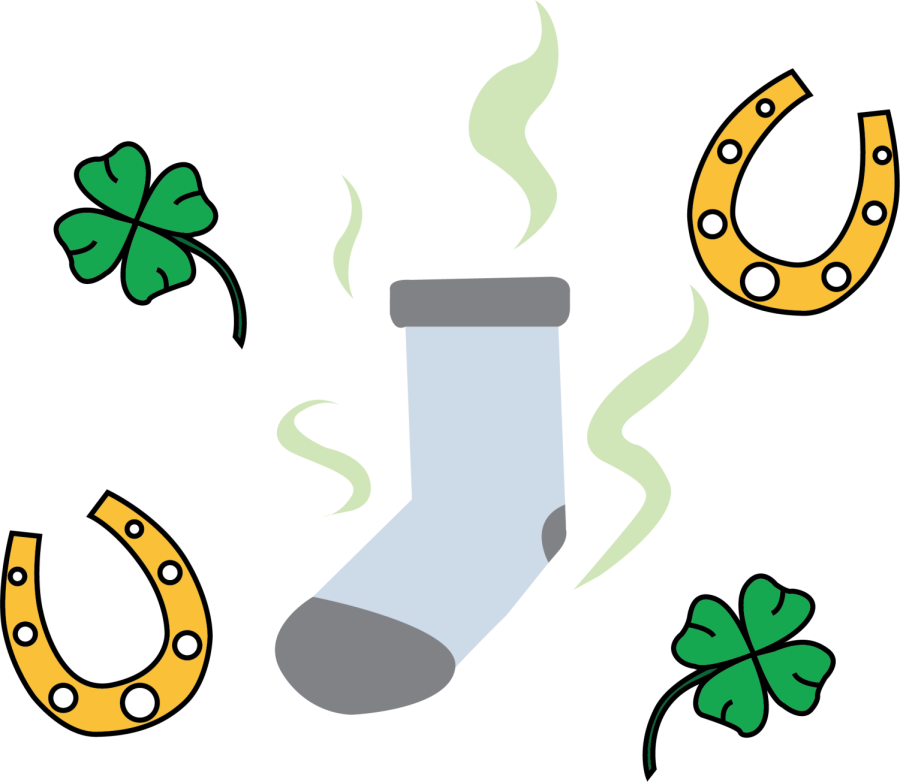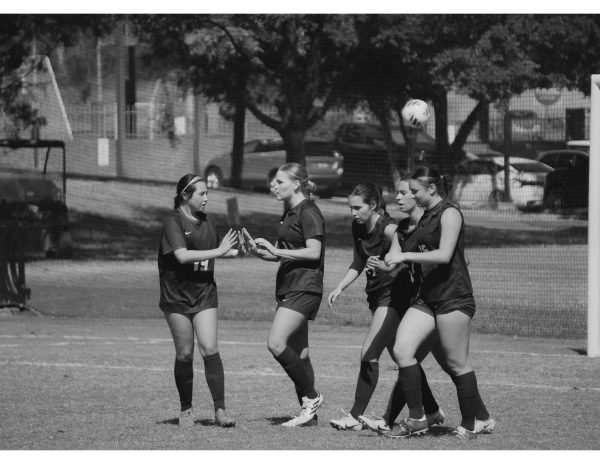Superstition and tradition: athlete’s pre-game rituals
An insider’s look at the pre-game traditions of Trinity Athletes
Pregame traditions mean something different to every athlete at almost every level of sport. Designed to reduce anxiety, these rituals can be anything from listening to a specific type of music to eating a particular meal before game day. LeBron James throws chalk powder into the air before tip-off; Hall of Fame wide receiver Calvin Johnson would do yoga before a game; the New Zealand rugby team performs a Haka (a traditional war chant) before games. Though these traditions may seem strange to the viewers on the outside, they serve a crucial purpose: getting the athletes ready to win.
Pregame traditions have been ingrained in sports since what feels like the dawn of time. They can range from the stereotypical (a “lucky” pair of socks that never get washed) to the absurd (former defensive end John Henderson would have his trainer slap him in the face before a game). No matter how strange they may sound, athletes will swear by their rituals for various reasons. In the final few minutes before the competition begins, a tradition can help a competitor lower the pressure and calm down, leading to better performance.
“Something that I used to do was that I would listen to a hype playlist,” said Jalen Leonce, a sophomore hurdler with the Trinity Track team. “I would try to do it right until I got into the blocks before my run. I think it’s always good for people to have something to get their mind off of the nerves.”
Listening to music before competing has been shown to have significant benefits. Along with giving athletes a distraction before they need to focus on the competition, many use it as a time to envision their goals for the task ahead. Eating is another less common (but far from rare) tradition for athletes. Athletes will grab last-minute snacks to keep their energy up, with energy bars and pickle juice being particular favorites.
“My pregame ritual is eating trail mix before the game,” said Foster Malloy, a first-year defensive lineman with the football team. “It came about earlier this year because they gave it to us before the game, and it stuck. Now I can’t play without it.”
“Most runners have a specific pregame meal,” first-year runner Kai McClelland said. “I’d drink a tub of beet juice about two to four hours before my races in high school after I read an article on the endurance benefits. I’m not sure how much it actually worked, but the placebo was at least beneficial.”
A ritual can extend beyond a physical action, such as eating or a specific warmup for some; another major part of the pregame ritual is the look of an athlete. Keeping a style throughout the season can provide a sense of normalcy before it’s time to compete.
“I’m so superstitious that I try not to be superstitious,” junior basketball player Maggie Shipley said. “The one thing that I do for every game is that I always wear my hair the same with two braids. That always provides five minutes where I’m quiet, and it’s a good calm moment before the game.”
Every athlete experiences their sport differently, and both the backstory and the evolution of a ritual can be as unique as the ritual itself.
“I started listening to music [before a race] in high school,” Leonce said. “One time, a certain song came on right before my race, and it kind of inspired me, and I ran a personal record. I don’t listen to music much anymore because one time it did end up messing me up, and I feel that if I don’t have to rely on that, then I’m not dependent on it.”
A change in situation can also provide a change in routine, as McClelland pointed out.
“I had a particular ritual at the start of high school when I began running competitively. I would wear my blue compression socks and get my hair braided by my teammate Haley [Haley Coleman, a runner at Concordia University in Irvine, California]. A lot of that changed in college. I no longer drink beet juice before my races, I braid my own hair now and I started writing mental health slogans on my legs. ‘Break the stigma’ on the left leg, and ‘mental health is health’ on the right leg.”
Though individual rituals may receive much spotlight, team rituals provide another fun look into the gameday atmosphere. Beyond making for a way to get excited before a game, a team ritual can also serve as a unique bonding experience between teammates. In the case of Shipley and the women’s basketball team, it can also be a motivator.
“Before most of the games, I and one of my teammates, Ashlyn [Milton, a junior], will come with a rap or some kind of song to pump everyone up for the game.”
Though the time before a game can be stressful, the time before a race can be equally taxing. By sharing some time with their teammates before the race, runners are able to reduce their nerves before the gun fires.
“Typically, we get together before a race with the hurdlers,” Leonce said. “There’s a lot of us, and we’re in the same heat most of the time. We just give a fist bump next to each other in the blocks, which is helpful, even if it’s just a little thing.”
In the end for many athletes, these traditions give them a sense of control that makes all the difference in competition.
“Pregame rituals can actually be very beneficial as long as they involve things that are entirely in the athlete’s control. Focusing on what you can control before race day is something that I’ve certainly had to learn,” McClelland said.

Hey! My name is Caleb Reed, and this will be my second year as the sports editor! Unfortunately, I'm a senior, so this will be my final year, but I've...







